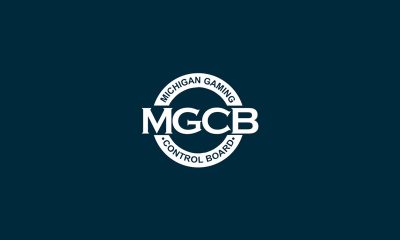Compliance Updates
Michigan Regulator Unanimously Votes to Renew Detroit Casinos’ Licenses
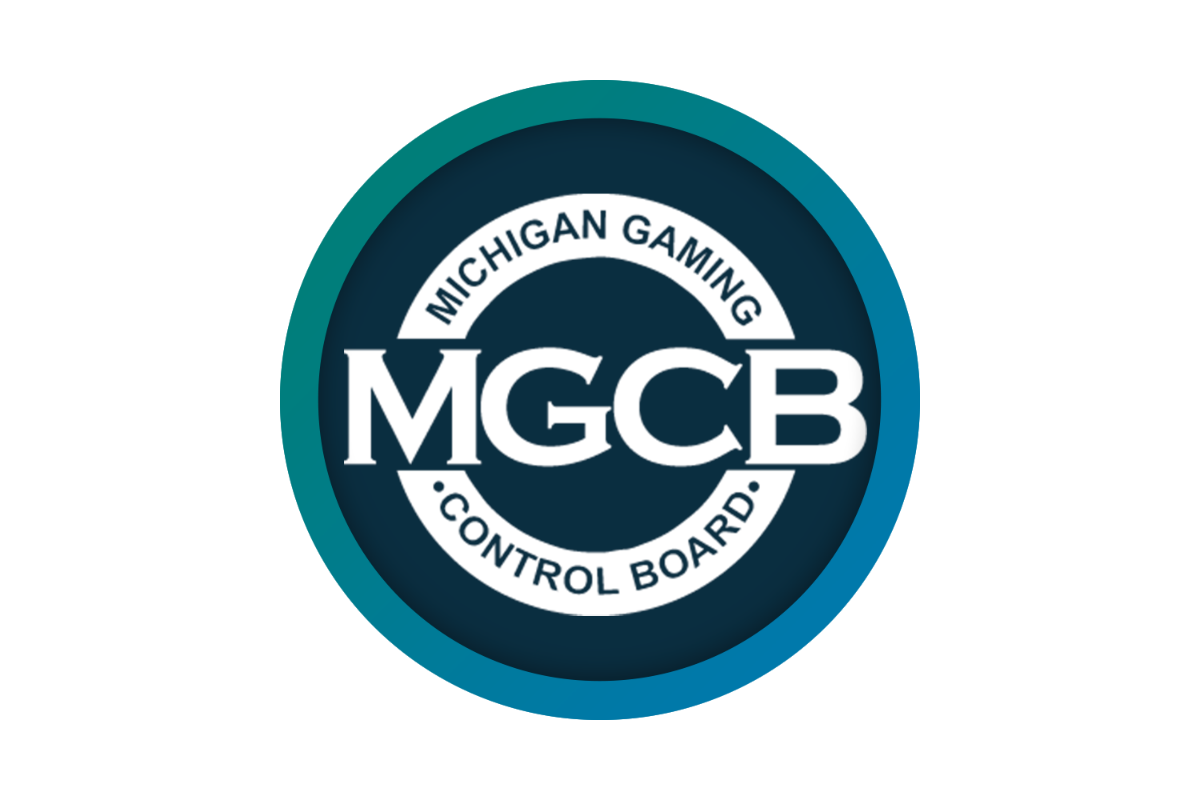
The Michigan Gaming Control Board (MGCB) unanimously voted to approve the one-year renewal of the licenses for the three authorized Detroit casinos — MGM Grand Detroit, MotorCity Casino, and Hollywood Casino at Greektown.
By law, three votes, which constitute a quorum for the Board, are required in support of final determinations on applications for a casino license.
“Renewing a casino license reflects an ongoing commitment to operate a reputable and responsible establishment. It signifies a dedication to maintaining high standards of quality, security, and fair play within the industry. The renewal of these licenses is validation of the casinos’ commitment to operating as responsible and valued corporate citizens within Michigan that contribute positively to the state’s gambling industry while ensuring a safe and enjoyable experience for all patrons,” MGCB Executive Director Henry Williams said.
The Michigan Gaming Control and Revenue Act established the casino license application process and the information applicants must share with the MGCB. For a casino license renewal, the MGCB must conduct a comprehensive evaluation of various aspects of the casino including its financial stability, operational integrity, and adherence to legal and regulatory frameworks as well as responsible gaming practices.
Licensees are taxed at a rate of 18% on adjusted gross receipts and remit their wagering tax daily via electronic funds transfer. The state receives 8.1% and the City of Detroit receives 9.9% of the wagering tax plus development agreement payments. The casinos also pay an 8.4% tax on retail sports betting qualified adjusted gross receipts, as well as an annual fee to cover the state’s regulatory expenses.
Michigan’s casino gaming law includes standards for promoting responsible gaming. Licensees are required to display the state’s toll-free gambling helpline number, 800-270-7117, at all entrances and exits, on each electronic funds transfer terminal and credit location, and on all printed advertisements and promotional materials.
The three Detroit casinos would each be eligible for license renewals again in August 2024.
Canada
AGCO Fines Great Canadian Casino Resort Toronto $350,000 for Serious Regulatory Violations Linked to Impromptu After-Party on Gaming Floor

The Alcohol and Gaming Commission of Ontario (AGCO) has issued monetary penalties totaling $350,000 against Great Canadian Casino Resort Toronto for multiple violations of provincial gaming standards. The penalties follow an impromptu after-party that was permitted to take place in the pre-dawn hours directly on the casino’s gaming floor.
On September 27, 2024, an electronic dance music event attended by thousands of people was hosted in the theatre adjacent to the casino at Great Canadian Casino Resort Toronto. The event was marked by widespread intoxication, disorderly behavior, and numerous criminal and medical incidents – both inside and outside the venue – including alleged assaults, drug overdoses, and acts of public indecency. Although paid duty officers were present, additional police and emergency services were required to manage the situation.
In the midst of this high-risk environment, casino management approved an unscheduled request by the performing artist to host an after-party on the active gaming floor. The artist and more than 400 guests were permitted onto the gaming floor where the artist was allowed to perform amidst operational table games and gaming machines – without any prior risk assessment or planning.
As a result, security personnel were unable to effectively control the casino floor, including witness reports that an attendee was seen climbing onto slot machines. Failure to maintain appropriate control compromises the security, safety, and integrity of the casino floor. Following the conclusion of the event, the operator failed to promptly report these incidents to the AGCO as required.
Based on the findings of its review, the AGCO’s Registrar has issued an Order of Monetary Penalty (OMP) totaling $350,000 against Great Canadian Casino Resort Toronto. These penalties address critical failures in their operations, incident reporting, employee training, and the management of disturbances.
A gaming operator served with an OMP has 15 days to appeal the Registrar’s decision to the Licence Appeal Tribunal (LAT), an adjudicative tribunal that is part of Tribunals Ontario and independent of the AGCO.
“Casino operators have a fundamental duty to control their gaming environment. Great Canadian Casino Resort Toronto’s lapses in this incident compromised the safety of patrons and the security and integrity of the gaming floor,” Dr. Karin Schnarr, Chief Executive Officer and Registrar of AGCO, said.
Compliance Updates
Esportes da Sorte holds forum on “Integrity in Sports” with Ceará and Náutico
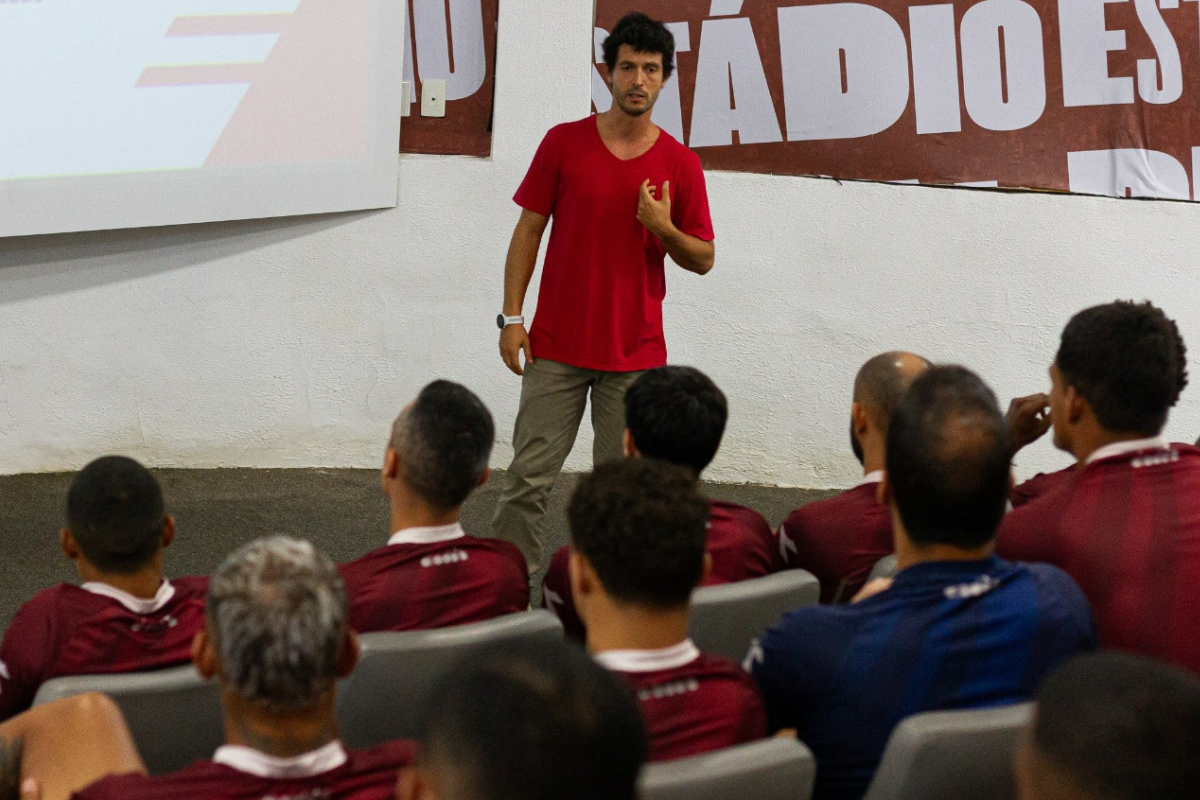
Esportes da Sorte hosted its Match-Fixing Prevention Forum last week at Ceará and Náutico as main sponsor of both clubs. Held in partnership with Sportradar, the initiative is part of a series of in-person workshops, with upcoming sessions planned for Corinthians and Ferroviária.
The project aims to combat illegal practices and reinforce a strong commitment to integrity in sport. Activities were tailored for athletes and members of the technical staff from the men’s and women’s professional teams, as well as the under-20 squads. During the sessions, topics such as the definition of match-fixing, types of fraud, fraudsters’ modus operandi, legal risks, and reputational impacts were covered. Participants were offered practical guidance on how to respond to suspicious approaches.
“This training programme reinforces our commitment to sports integrity and responsible gaming, pillars that guide our actions. We believe education is the best form of prevention, and we want to stand alongside clubs in this joint effort for transparency and the protection of sport,” said Ana Carolina Luna Maçães, Compliance Manager at Esportes Gaming Brasil, the group behind the Esportes da Sorte brand.
“Ceará takes this topic very seriously. The club is an important player in the fight against match-fixing. We act preventively with regular meetings and have a handbook that addresses the topic with our squad. It is our duty to provide these moments of learning for athletes and technical staff. We live in a time when the integrity of sport is being questioned. In this scenario, actions like this are extremely important,” commented Lucas Drubscky, Football Executive at Ceará.
The sessions were led by Felippe Marchetti, Integrity Partnerships Manager at Sportradar, a global sports technology company and recognized authority in sports integrity. In Brazil, Sportradar partners with the Brazilian Football Confederation (CBF) and 17 state federations, monitoring more than 10,000 matches per season. The company recently signed a Technical Cooperation Agreement (TCA) with the Ministry of Finance and the Ministry of Sports.
“Raising awareness among athletes and teams is one of the most effective ways to protect competitions from manipulation. These workshops are designed to equip participants with the knowledge and tools to recognize threats and act responsibly. We are proud to support initiatives like this that strengthen the integrity of Brazilian sports,” said Felippe Marchetti.
Compliance Updates
New Bill in California Could End Online Sweepstakes Gaming

California State Assemblymember Avelino Valencia (D-Anaheim) has introduced Assembly Bill (AB) 831 to protect Californians from unregulated online gambling by prohibiting online sweepstakes games that use a “dual currency” model to mimic casino-style wagering.
“Sweepstakes” platforms sell virtual coins that are used to play casino-style games and can be redeemed for cash or prizes, essentially operating as unlicensed gambling businesses. By exploiting “No Purchase Necessary” disclaimers, they sidestep California’s regulatory framework and evade the state’s voter-approved proposition related to Tribal-State gaming. Many of these “sweepstakes” operators are based offshore and function without proper oversight, avoiding requirements like consumer protections, responsible gaming safeguards, background checks, and tax compliance.
“We cannot look the other way while these platforms exploit legal grey areas. These operations undermine the voter-approved framework that affirms Tribal governments’ sovereign right to conduct gaming in California. AB 831 strengthens that framework and ensures gaming in California remains fair and accountable,” said Assemblymember Avelino Valencia.
AB 831 fortifies existing sweepstakes laws and clarifies the illegality of internet-based sweepstakes that use the dual currency model. It reinforces the shared responsibility between the State, licensed operators, and Native Nations to keep gaming safe, transparent, and accountable. AB 831 is co-sponsored by the Yuhaaviatam of San Manuel Nation, the California Nations Indian Gaming Association (CNIGA), and the Tribal Alliance of Sovereign Indian Nations (TASIN), reflecting strong support from across Indian Country.
“For over 25 years, Tribal governments like Yuhaaviatam of San Manuel Nation, have upheld the will of California voters by operating gaming with integrity. That commitment has allowed us to reinvest in our communities, boost local economies, and support essential public services on reservations and in partnerships across the state. Illegal online gaming now threatens this foundation—compromising voter-approved law and putting Californians at risk,” said Yuhaaviatam Tribal Council of San Manuel Chairwoman Lynn Valbuena.
“We support this legislation that will close dangerous loopholes and strengthen the integrity of California’s gaming system. We remain committed to defending a proven framework that protects the sovereignty of Tribal Nations and delivers real and lasting benefits to all Californians. Together, Tribal governments and the State of California will continue to address and take decisive action against illegal internet gaming in all its forms,” said Yuhaaviatam Tribal Council of San Manuel Vice Chairman Johnny Hernandez, Jr.
“Tribal government gaming contributes nearly $25 billion to California’s economy, sustains over 112,000 jobs, and funds critical community programs. Unregulated online sweepstakes threaten this voter-approved system by imitating casino gaming without oversight, accountability, or community investment. These illegal platforms erase the benefits of regulated gaming while exposing consumers to serious risks,” said CNIGA Chairman James Siva.
AB 831 is pending a hearing in the Senate.
-

 partnerships7 days ago
partnerships7 days agoInternational Gaming Standards Association Welcomes New Payments Committee Member: Sightline Payments
-

 Latest News7 days ago
Latest News7 days agoFBM® unveils golden treasures in Mexico with Croc’s Lock™ bites
-

 Compliance Updates7 days ago
Compliance Updates7 days agoHonolulu Mayor Signs New Laws Targeting Illegal Game Rooms
-

 eSports6 days ago
eSports6 days agoBETBY EXPANDS LATAM FOOTPRINT WITH MOBADOO ESPORTS PARTNERSHIP
-

 Latest News7 days ago
Latest News7 days agoAGS Named One of U.S. News & World Report’s 2025–2026 Best Companies to Work For
-
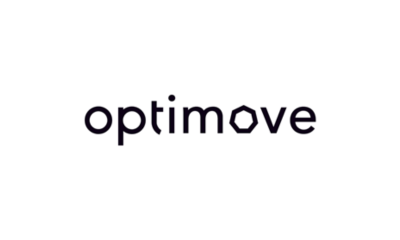
 Latest News5 days ago
Latest News5 days agoOptimove and EveryMatrix Launch Real-Time Integration to Power Smarter Marketing for iGaming Operators
-
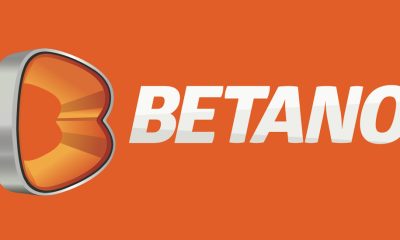
 Latest News5 days ago
Latest News5 days agoBetano, Official Sponsor of CONMEBOL Copa América Femenina 2025™
-

 Latest News5 days ago
Latest News5 days agoSpotlight 29 Casino and Tortoise Rock Casino to Launch Konami Gaming’s SYNKROS Casino Management System












